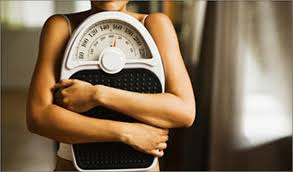Just Google the phrase “Do I have an eating disorder?” and you’ll see many of the results are quizzes for screening purposes. Unfortunately, quizzes don’t address your worry or ease the anxiety that led you to consider your relationship with food in the first place.
Internally, you know something isn’t right.
Are you worried that your attitude toward food is unhealthy?
Have your relationships and everyday life been negatively impacted?
Have you read descriptions of eating disorders and wondered if anorexia, bulimia, or something called orthorexia–the act of cutting entire food groups out of your diet–applies to you?
Fortunately, finding out for sure isn’t difficult. And help isn’t far away.
Below, you’ll find questions grouped into categories. They are meant to give you a good sense of whether your relationship with food is healthy. When you’ve answered them, honestly consider whether you need help turning things around.
Body image: What are my thoughts about my body?
Poor body image often shows up early on. Here are a few questions related to body image:
- Do you hate your body shape, size, or weight?
- Are you afraid of gaining weight?
- Are you afraid of having fat on your body?
- Do you wear clothing that conceals your body shape/size, even if it’s uncomfortably warm?
Behavioral signs: Does my eating behavior interrupt/impede my daily normal life?
Clear behavioral indicators of an eating disorder include:
- Are you taking laxatives, diet pills, or diuretics?
- Do you weigh yourself every day?
- Are you constantly counting calories burned?
- Do you exercise and/or go to the gym a lot?
- Are you a perfectionist?
- Are you a “control freak”?
- Do you avoid eating in the presence of other people?
- Do you find yourself avoiding friends and family often?
Eating habits: Do my eating habits consume my time and thoughts?
Obviously, eating habits must factor in here somewhere, since eating disorders involve food, and we do have to eat. The thing is, if you have a disorder, you may not be fully aware of what’s going on.
- Ask yourself these questions:
- Do you eat lots of food in a small amount of time?
- Do you purposely vomit?
- Do you eat at odd times of the day?
- Do you avoid eating when you’re hungry?
- Do you eliminate entire food groups from your diet?
- Do you find yourself thinking about food a lot?
- Do you collect recipe books and/or cookbooks?
- Do you create food combinations that others consider odd?
- Do you cook big fancy meals for other people? (vicarious eating)
- Do you take part in eating rituals like arranging your food or cutting it into small pieces?
Mental condition: Are my emotions and mood constantly impacted by the way I eat?
Mental health also plays a big role in eating disorders:
- Do you get depressed a lot or have mood swings?
- Do you feel guilty after you eat?
- Do you ever find yourself having suicidal thoughts?
Physical condition: Is the way I eat adversely affecting the way my body operates?
- Eating disorders often come with physical signs, too, particularly in the case of anorexia:
- Does your face look gaunt or hollow?
- Does your cheek/jaw area appear swollen (where your salivary glands are)?
- Are you routinely constipated?
- Have you noticed a loss of muscle or weakness?
- Is there long, downy hair growing on your arms/legs? (This is called lanugo; it’s literally the body trying to keep itself warm when weight gets extremely low due to self-starvation).
Did you answer “yes” to many of the questions above?
Don’t wait until you feel worse.
If you found yourself nodding to a lot of these questions, schedule time with your physician, and seek the guidance afforded by professional therapy for your eating disorder.
You don’t have to continue living with an unhealthy relationship with food. You can overcome whatever obsessions, compulsions, or behaviors that are getting in your way. There is no shame in confronting the underlying problems that are causing an eating disorder. Break the bad food/thought cycle and get back on track.
Take the first step…
If you are ready to address your issues with food and how they are affecting your life, I would like to help. Please contact me via phone or email so we can discuss how we might work together to achieve your therapeutic goals as quickly and effectively as possible.
I look forward to hearing from you.
Linda K. Laffey, MFT


